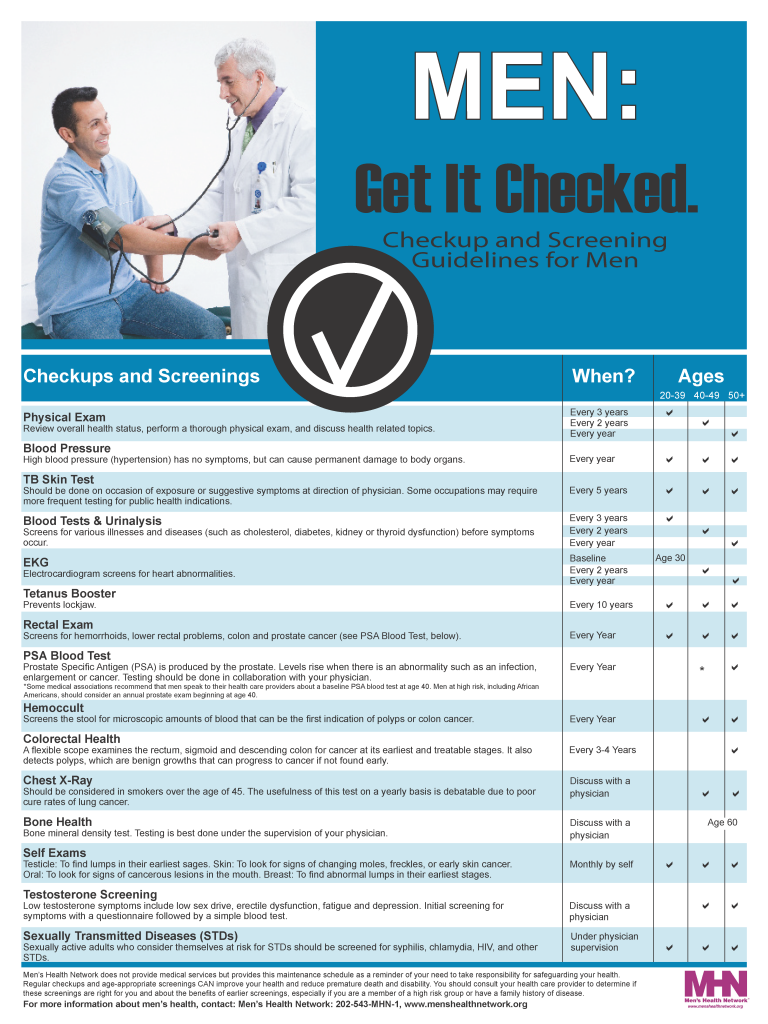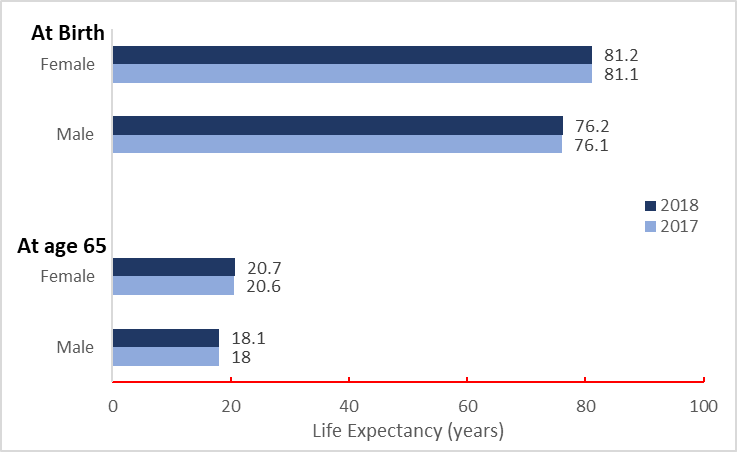MEN's Health Month
June is Men's Health Awareness Month
Video edited on Kapwing
On average, men die 5 years earlier than women. Not surprising, they are at higher risks for serious diseases, including heart disease, lung cancer, and HIV. As such, it’s important to raise awareness about preventive screenings and regular health care for men of all ages.
What regular screenings should men get and when?
Regular health screenings are an essential tool for early detection of new onset or existing health issues warranting treatment. Ultimately, the earlier a diagnosis is made the better the prognosis and outcome. Current recommendations for regular screenings include those listed below. Courtesy “Men’s Health Network”.
Download a printable copy here.

The Gender Gap
In 1920 there was only about a 1-year gap in life expectancy between women and men. Today that gap has expanded to five years. It would be expected that the length of life for men and women would increase equally with advanced medicine, but it hasn’t.
Why?
- A higher percentage of men have no healthcare coverage.
- Men make 1/2 as many physician visits for prevention.
- Men are employed in the most dangerous occupations, such as mining, firefighting, construction, and fishing.
- Society discourages healthy behaviors in men and boys alike.
- Research on male-specific diseases is underfunded.
- Men have less healthy lifestyles including risk-taking at younger ages.
- Men have higher risks of being a victim of homicide than women





The woman's role in men's health
Men’s health issues have a significant effect on everyone around them. Because women live longer than men, women are often left picking up the pieces after our husbands, fathers, brothers, and sons suffer or die prematurely.
More than half of elderly widows now living in poverty were not poor before the death of their husbands.
How you can help.
First, get your man to make and keep regular preventive health visits. If he doesn’t have health insurance or can’t afford preventive visits, check with your local Federally Qualified Health Centers (FQHC). Unlike private practices, FQHCs can provide services on a sliding fee scale. Additionally, FQHCs often provide a variety of services including dental, physical, and mental health.
Second, make sure your man is doing regular self-exams to check for possible cancers including, breast, prostate, and skin cancers.
Lastly, watch for health pattern changes and symptoms such as bladder and bowel habits. Is your man getting up to go to the bathroom frequently in the middle of the night? Frequent trips to the bathroom, especially those that awaken a man, are often directly correlated with an enlarging prostate. Likewise, changes in sleeping or mood patterns can indicate an emerging depressive or other mental health issue. Since men are four times more likely to succeed in committing suicide, time is of the essence. In conclusion, you often notice the appearance of a wide array of symptoms before your man does. Give him a little nudge, it could add years to his life!
- Published: May 9, 2022
- Page reviewed/updated: May 3, 2023



